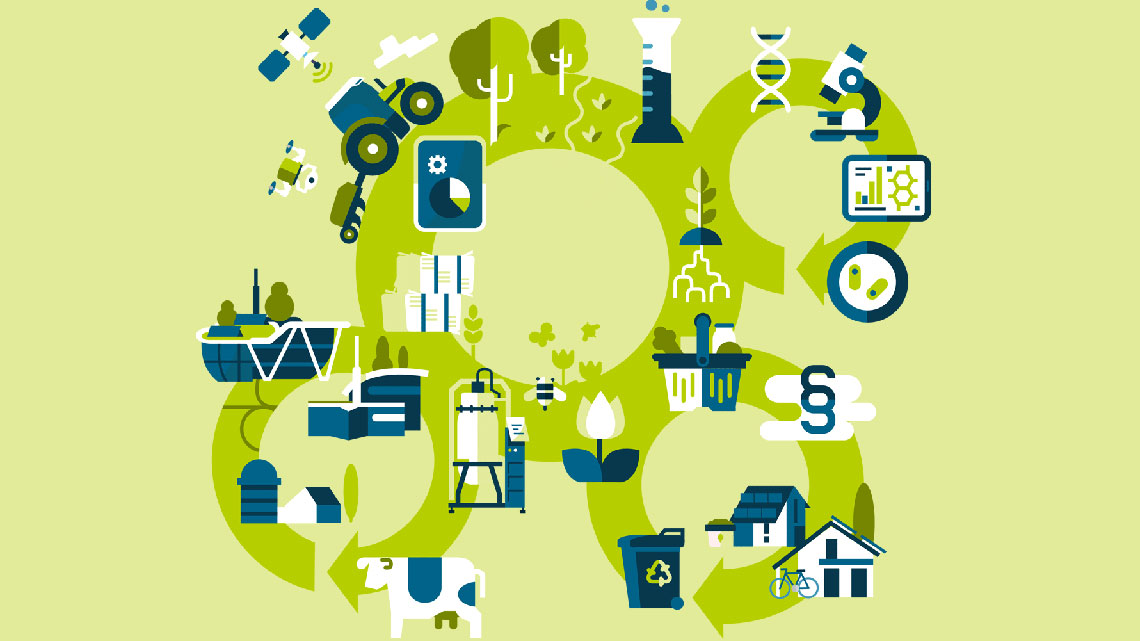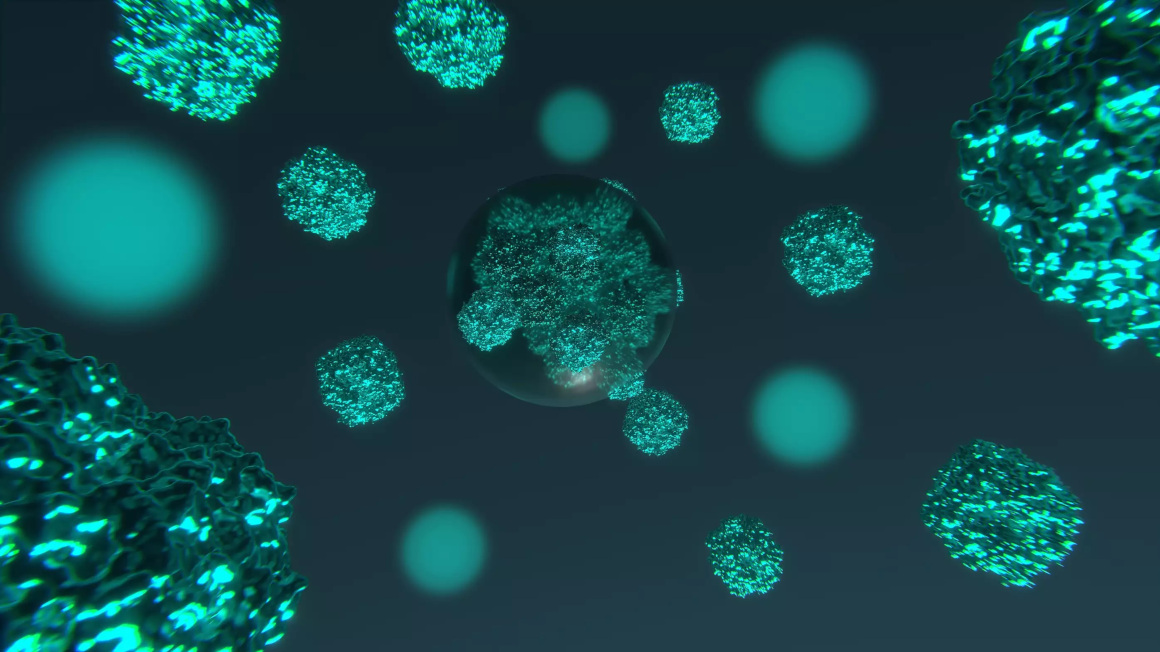
The term bioeconomy refers to a modern and sustainable form of economic activity based on the efficient use of biological resources such as plants, animals and microorganisms. This requires highly innovative approaches to utilization.
The bioeconomy covers all industrial and economic sectors that use renewable biological resources to manufacture products and provide services using innovative biological and technological knowledge and processes. This includes all industries that produce, process or use biological resources in any form, such as agriculture and forestry, energy, fisheries and aquaculture, chemicals and pharmaceuticals, food, industrial biotechnology, cosmetics, paper and textiles, and environmental protection.
Nowadays, many products of daily use are based on oil. For the chemical industry and its customers, oil is the most important raw material and energy source.
However, the current economic system is reaching its limits. The economic dependencies between countries with large reserves of raw materials and countries that do not have such deposits have increased significantly in recent years and have repeatedly led to political tensions. The use of fossil raw materials such as oil, coal and gas also represents a considerable burden on the climate and environment. Among experts, it is undisputed that the current way of doing business as well as individual consumption patterns are responsible for a large proportion of greenhouse gas emissions and thus for current global climate problems. If considerable efforts and decisive changes are made within the next few years, there is still a chance of getting a grip on global warming, according to the current assessment of the Intergovernmental Panel on Climate Change. The need for action is also felt in the midst of Europe. After all, it is no longer only distant islands or seas that are affected: Since the beginning of weather recording in 1881, it has become 1.2 degrees warmer on average in Germany.
But it is not only the climate conditions that are becoming a challenge. The world population is also growing rapidly. In 2013 alone, the total number of people in the world has grown as much as Germany's total population. More than nine billion people are expected to live on earth in 2050. One question that is still unresolved is how to these feed nine billion people without further overexploitation of nature. Growing prosperity, which is now also being experienced in many emerging countries, is also leading to rising global demand for products and services, such as energy, infrastructure and healthcare services. The world in the 21st century faces a central challenge: How can a global economy grow sustainably? How can economy and ecology be combined? The bioeconomy can make a significant contribution to solving these questions. It links economy and ecology in an intelligent way, thus enabling biobased and sustainable economic growth.
In order to achieve sustainable economic growth, the bioeconomy is based on two essential principles: It relies on sustainably produced, renewable resources and on biobased innovations. Ever since the industrial revolution, innovations in the natural and technical sciences have made a decisive contribution to prosperity and growth. Especially resource-poor countries such as Germany are dependent on using existing knowledge and excellence for renewable raw materials, for new products and services, for innovation-driven economic growth. It is now important to use this innovative and investment power to bring about the necessary transformation of the economic system towards sustainability.
The bioeconomy touches on a wide range of sectors such as agriculture and forestry, horticulture, fisheries and aquaculture, plant breeding, the food and beverage industry, as well as the wood, paper, leather, textile, chemical and pharmaceutical industries and even parts of the energy sector. Biobased innovations also provide growth impulses for other traditional sectors, for example in the trade with raw materials and food, in the IT sector, in mechanical and plant engineering, in the automotive industry and in environmental technology.
Germany holds an international leading position in the bioeconomy. At the end of 2010, Germany was one of the first countries to publish a six-year, interdepartmental "National Research Strategy BioEconomy 2030", thereby setting the course for the first time for a biobased transformation of industry and society. In addition, a "National Bioeconomy Policy Strategy" was adopted by the Federal Cabinet in 2013 to coordinate all government activities on the bio-conomy across all ministries.


